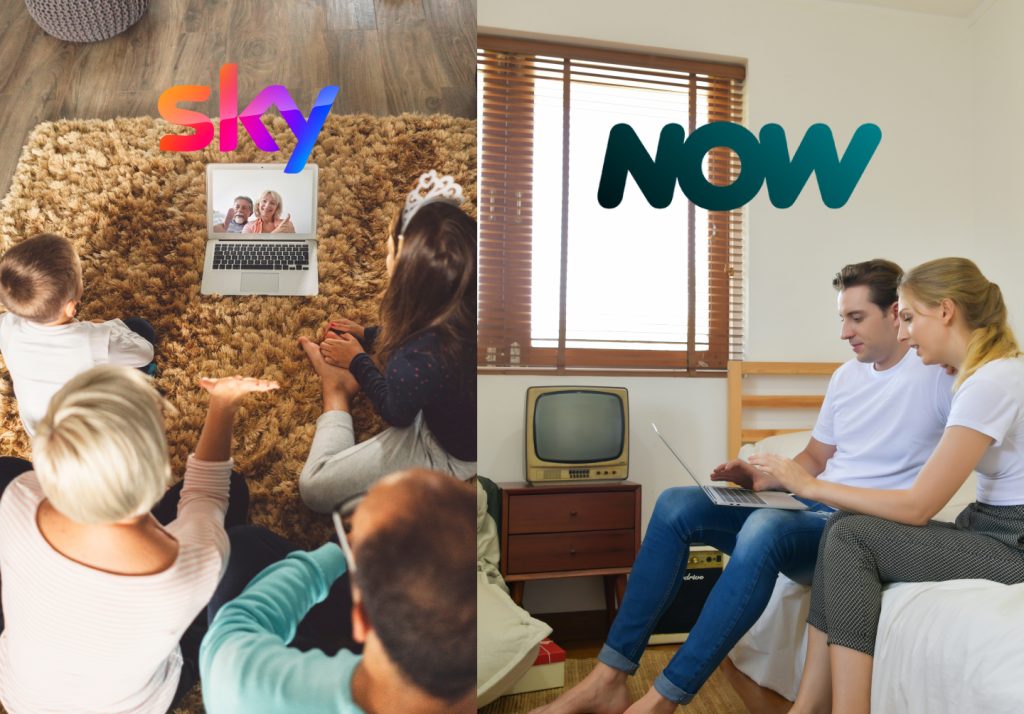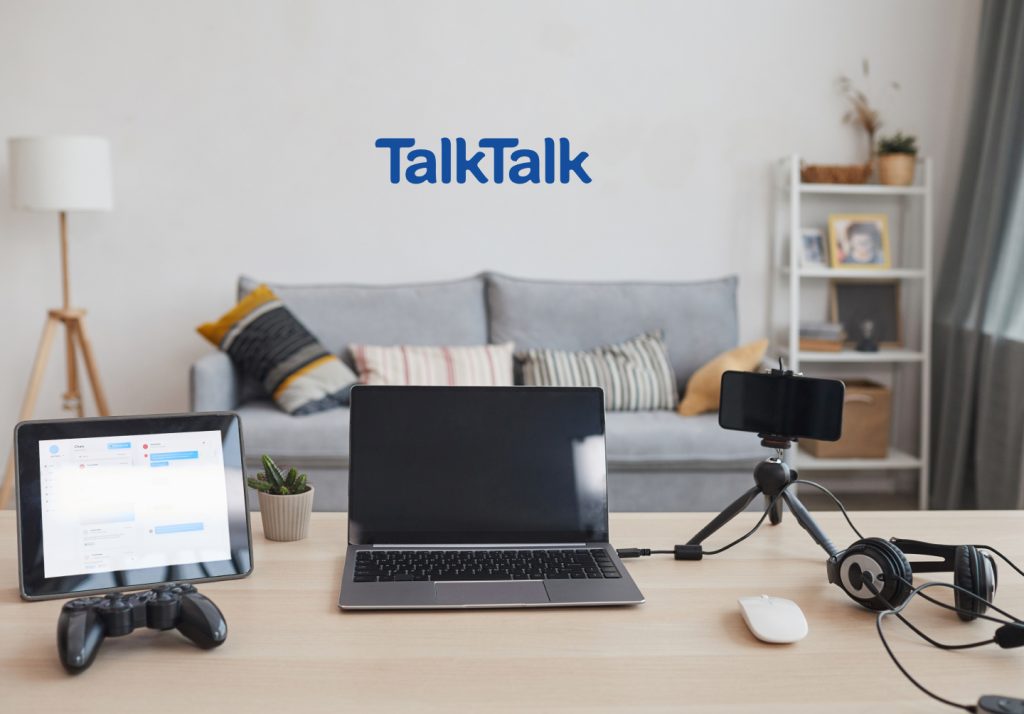
What is a broadband social tariff?
Broadband social tariffs are specially designed internet plans aimed at providing affordable internet access for individuals and households facing financial difficulties. These tariffs are part of an initiative to make connectivity more accessible by offering reduced prices compared to standard broadband packages. By lowering the monthly cost of internet service, social tariffs help ensure that those on lower incomes can still stay connected, access essential online services, and participate in digital life. This initiative plays a crucial role in bridging the digital divide, ensuring that financial constraints don’t prevent people from staying online and engaged.
These tariffs are designed to support a wide range of internet activities, from browsing and streaming to managing online tasks and staying in touch with loved ones. For many, the affordability of social tariffs makes it possible to maintain a stable internet connection without undue financial strain, thus supporting both daily living and digital participation.
How could a broadband social tariff help me?

A broadband social tariff can be a lifeline if you’re dealing with a tight budget. By significantly reducing the cost of your internet service, these tariffs make it possible for you to stay connected without overspending. This financial relief is particularly important if you rely on the internet for work, online education, or managing daily activities such as banking and accessing healthcare services. The savings from a social tariff can be redirected towards other essential expenses, providing much-needed flexibility in your budget and alleviating some financial stress.
Moreover, having access to a reliable internet connection enhances your overall quality of life by enabling you to maintain social connections, access critical information, and engage in online activities. The reduced cost associated with social tariffs ensures that you can continue to benefit from the internet’s many advantages without compromising your financial stability.
Who is eligible for broadband social tariffs?
Eligibility for broadband social tariffs generally targets individuals and households that are experiencing financial hardship. To qualify, you usually need to be receiving specific types of government benefits, such as Universal Credit, Pension Credit, or other forms of financial assistance. Each broadband provider may have its own set of criteria, so it’s important to check the specific requirements of the provider you’re interested in. Typically, you will need to provide proof of your financial situation or benefits status, such as benefits statements or pay slips.
These tariffs are designed to support those who are most in need, helping to ensure that financial barriers do not prevent people from staying connected. By meeting the eligibility criteria, you can gain access to these affordable plans and enjoy the benefits of a reliable internet connection.
Will a social tariff provide a fast enough broadband connection?

Concerns about the speed of broadband connections under social tariffs are common. Most social tariffs are designed to meet basic internet needs, such as web browsing, streaming standard-definition content, and participating in video calls. While they may not offer the highest speeds available, they generally provide enough bandwidth for everyday activities. If your internet usage is modest—like checking emails, attending online meetings, or streaming standard-definition video—a social tariff should suffice.
However, if your internet needs are more demanding, such as streaming in high definition or gaming, you might find that social tariffs offer lower speeds compared to standard broadband plans. It’s important to assess your specific needs and compare the speeds offered by social tariffs to those available with regular broadband plans to ensure that you choose the best option for your requirements.
Is a social tariff as good as a regular broadband deal?
While social tariffs provide a cost-effective alternative to regular broadband deals, they may not always match the features or speeds of standard plans. Social tariffs are designed to prioritize affordability, which means they might offer fewer features and lower speeds compared to regular broadband options. Standard broadband deals often come with a variety of speeds, higher data allowances, and additional perks such as bundled services or advanced features.
If your main concern is keeping costs down, a social tariff can be an excellent choice. However, if you require more advanced features or higher speeds, you might need to weigh whether the benefits of a regular broadband plan justify the additional expense. Consider your specific needs and budget to determine whether a social tariff or a standard plan is the better fit for you.
Is it worth signing up for a social tariff?
The decision to sign up for a social tariff should be based on your individual circumstances and needs. If you’re struggling with the cost of regular broadband and qualify for a social tariff, the reduced price can offer significant financial relief. This can make a substantial difference in your budget, allowing you to allocate funds to other important areas and easing some of the financial pressure.
However, if you need higher speeds or additional features that aren’t available with social tariffs, you may need to consider whether a standard plan would better meet your needs. Evaluate your internet usage and financial situation to determine whether the benefits of a social tariff outweigh any potential drawbacks, ensuring that you make the most informed choice for your circumstances.
What other benefits do social tariff customers receive?
In addition to the reduced cost, social tariff customers may enjoy several other benefits. Some providers offer added perks such as flexible contract terms or enhanced customer support for those on social tariffs. These benefits can enhance the overall value of the tariff, making it a more attractive option beyond just the lower price.
Being on a social tariff also ensures that you have access to the internet, which is crucial for managing everyday tasks, accessing services, and staying connected. While the primary advantage of social tariffs is the reduced cost, the additional benefits provided by some providers can further improve your experience and support your internet needs.
How do I apply for a broadband social tariff?
Applying for a broadband social tariff is typically a straightforward process. Start by researching which broadband providers offer social tariffs and reviewing their eligibility criteria. Most providers list their social tariff options on their websites, including information on how to apply. Generally, you will need to provide proof of eligibility, which could include documentation such as benefits statements or payslips.
The application process usually involves submitting this documentation and verifying your eligibility. You can often apply online, by phone, or in person at a provider’s store. Once your application is processed and approved, the provider will help set up your new plan and ensure a smooth transition from your current service.
Is it difficult to sign up for a social tariff?
Signing up for a social tariff is generally not difficult, although it does require meeting certain eligibility criteria and providing necessary documentation. The application process is designed to be accessible, with many providers offering support to guide you through it. While there may be some paperwork involved in proving your eligibility, the process is usually straightforward.
If you have questions or need assistance, customer service teams are typically available to help. They can provide guidance on the application process and ensure that you understand the requirements. Overall, while there may be some initial effort needed to provide documentation, the process is generally user-friendly and manageable.
Will I need to pay an exit fee to switch to a social tariff?
Whether you need to pay an exit fee to switch to a social tariff depends on the terms of your current broadband contract. If you are still under contract with your existing provider, you may face an exit fee for terminating your agreement early. However, many providers are understanding of financial hardship and may allow you to switch without incurring a fee, especially if you’re moving to a social tariff due to financial difficulties.
It’s important to review the terms of your current contract and discuss them with your provider. They can provide information on any potential fees and help you understand your options. In some cases, providers may offer assistance or even cover the exit fee if it’s a barrier to switching, making the transition smoother and more affordable.
Full list of broadband social tariffs and providers
To help you make an informed choice, here’s a table summarizing the broadband social tariffs available from different UK providers. This includes their prices, average speeds, eligibility criteria, and the areas they cover.
| Broadband Social Tariff | Price per Month | Average Speed | Eligibility | Areas Available |
| BT Home Essentials | £15 | 36 Mbps | Universal Credit, Pension Credit | Nationwide |
| Virgin Media Essential | £12.50 | 15 Mbps | Universal Credit | Selected areas |
| Sky Broadband Basics | £20 | 36 Mbps | Universal Credit | Nationwide |
| Now Broadband Basics | £20 | 36 Mbps | Universal Credit | Nationwide |
| TalkTalk Social Tariff | £15 | 40 Mbps | Universal Credit, Jobseeker’s Allowance | Nationwide |
| EE Basic Plan | £10 | 10 Mbps | Various benefitsUniversal Credit, Income Support | Nationwide |
| Plusnet Basic | £12.50 | 30 Mbps | Universal Credit, Income Support | Nationwide |
How to switch to a broadband social tariff

Switching to a broadband social tariff involves several steps to ensure a smooth transition. Begin by researching available social tariff options from different providers to find one that best meets your needs. Once you’ve selected a provider, initiate the application process by contacting them and providing proof of eligibility, such as documentation of your financial situation or benefits status.
After your application is approved, the new provider will typically handle the transition process, including coordinating the switch from your current provider. This may involve some overlap in service to ensure that you have continuous internet access during the transition. Communicate with both your current and new providers to understand any potential issues or requirements, ensuring a seamless changeover to your new social tariff plan. With proper planning and communication, switching to a social tariff should be straightforward and hassle-free.
Social tariffs for BT broadband customers

BT’s social tariff, BT Home Essentials, is specifically crafted to provide an affordable broadband option for individuals and families who are struggling financially. This plan is designed for those who qualify for state benefits such as Universal Credit or Pension Credit. With BT Home Essentials, you can expect a basic broadband service that is much cheaper than BT’s regular plans. The primary aim is to offer essential connectivity without the burden of high costs, making it easier for users to perform everyday online tasks like managing finances, accessing health information, or staying connected with loved ones.
While the Home Essentials plan focuses on affordability, it might not include the higher speeds or additional features of BT’s premium packages. However, it still provides a reliable and functional internet connection, ensuring that you can stay connected without exceeding your budget. For many, this tariff represents a crucial step towards digital inclusion, allowing them to access the internet affordably despite financial constraints.
Social tariffs for EE broadband customers

EE’s EE Basic Broadband is designed to support low-income households by offering a reduced-cost broadband plan. This social tariff is available to those who receive government benefits such as Universal Credit. EE Basic Broadband provides standard internet speeds that are adequate for everyday activities, including browsing the web, checking emails, and streaming content in standard definition. This makes it a practical option for individuals and families who need to stay connected but are working within a tight budget.
The plan focuses on delivering essential connectivity at a more affordable price point, which can be a significant relief for those struggling with financial pressures. Although it may not offer the advanced speeds or extra features found in EE’s higher-tier plans, EE Basic Broadband ensures that users can access vital online services without the strain of high monthly costs. This tariff represents a valuable resource for maintaining internet access without compromising on affordability.
Social tariffs for Plusnet broadband customers

Plusnet Essentials is the social tariff offered by Plusnet, catering to those who are on low incomes or receive specific benefits such as Universal Credit or Pension Credit. This plan provides a basic broadband service at a lower cost than Plusnet’s standard offerings. The focus is on delivering essential internet access that allows users to perform everyday online tasks without stretching their budget. Plusnet Essentials ensures that individuals and families who qualify can maintain connectivity for managing finances, accessing online services, and staying connected with others.
While Plusnet Essentials might not offer the high speeds or additional features available in Plusnet’s premium plans, it provides a reliable and cost-effective solution for those in need. This tariff aims to bridge the digital divide by making essential broadband access more affordable, helping to ensure that financial constraints do not prevent users from staying connected and accessing online resources.
Social tariffs for Sky and NOW broadband customers

Sky offers the Sky Basic Broadband plan, while NOW provides the NOW Broadband Basic tariff, both designed to support low-income households. These social tariffs are available to individuals who qualify for benefits such as Universal Credit. Sky Basic and NOW Broadband Basic are intended to make internet access more affordable by offering reduced prices for essential broadband services. The plans provide standard broadband speeds that are sufficient for general internet use, including browsing, emailing, and streaming standard-definition content.
Both Sky and NOW focus on delivering essential connectivity at a lower cost, although these plans might not include the high speeds or additional features of their premium options. The goal of these tariffs is to ensure that those on tight budgets can still access the internet and benefit from essential online services without financial strain. For many, Sky Basic and NOW Broadband Basic are valuable options for maintaining a reliable internet connection affordably.
Social tariffs for Virgin Media broadband customers

Virgin Media offers the Virgin Media Essential tariff to provide an affordable broadband option for customers facing financial difficulties. This social tariff is aimed at individuals who receive state benefits such as Universal Credit. Virgin Media Essential includes a basic broadband service at a reduced price, making it easier for low-income households to access essential internet services. The plan offers sufficient speeds for everyday online activities like browsing, emailing, and streaming content in standard definition.
While Virgin Media Essential may not offer the high speeds or extensive features found in Virgin Media’s premium plans, it ensures that users can stay connected without breaking the bank. The primary focus of this tariff is on affordability, providing a practical solution for those who need to manage their budget carefully while still benefiting from reliable internet access.
Social tariffs for TalkTalk broadband customers

TalkTalk Essentials is the social tariff provided by TalkTalk, designed to offer a more affordable broadband option for those on low incomes or receiving benefits. This plan aims to make internet access more accessible by providing a basic broadband service at a reduced cost. Eligibility typically includes individuals who are on benefits such as Universal Credit or Pension Credit. TalkTalk Essentials focuses on delivering essential connectivity for everyday use, including browsing and email, without the higher costs associated with standard broadband plans.
While TalkTalk Essentials might not include the high speeds or additional features of TalkTalk’s premium options, it offers a reliable internet connection that helps users stay connected while managing their finances. This tariff is an important resource for those who need to keep their monthly expenses in check while still enjoying the benefits of internet access.
Social tariffs for other broadband providers
Various other broadband providers may offer their own social tariffs to assist low-income households. These tariffs are generally designed to provide affordable internet access for individuals who qualify for state benefits or meet specific financial criteria. While the details of these tariffs can vary between providers, the overarching goal is to ensure that essential internet connectivity is accessible to those who need it most.
To find out if other providers offer social tariffs, you’ll need to check their websites or contact their customer service departments. The available plans might differ in terms of speed, cost, and additional features, but they all aim to make broadband more affordable for those on tight budgets.
Switching to a social tariff with a different provider
Switching to a social tariff with a different provider involves several steps. First, research and compare the social tariff options available from different providers to find one that best meets your needs. Once you’ve identified a suitable plan, you’ll need to check the eligibility criteria and gather any required documentation, such as proof of benefits or financial status. After applying and being approved for the social tariff, the new provider will typically handle the transition process, including coordinating the switch from your current provider.
It’s important to communicate with both your current and new providers to ensure a smooth transition. Discuss any potential issues, such as contract termination fees or service overlaps, to avoid disruptions in your internet access. With proper planning and communication, switching to a social tariff should be a manageable process, allowing you to benefit from more affordable broadband while maintaining reliable connectivity.
What should I do if I’m not eligible for a social tariff?

If you’re not eligible for a social tariff, there are still ways to find more affordable broadband options. Many providers offer budget-friendly plans that might not be specifically categorized as social tariffs but still provide reduced rates for basic internet services. Consider exploring these lower-cost plans, which can help you save money while still meeting your internet needs.
Additionally, you can look into broadband comparison tools and websites to find the best deals available. Some providers may offer promotional discounts or special offers that can make their standard plans more affordable. By comparing different options and taking advantage of promotions, you can find a broadband plan that fits your budget even if you don’t qualify for a social tariff.
How to get cheaper broadband If you’re not eligible for a social tariff
If you don’t qualify for a social tariff but still want to reduce your broadband costs, there are several strategies you can use. First, look for budget-friendly broadband plans offered by various providers. Many companies have basic packages designed for cost-conscious customers, which can provide essential internet access at a lower price.
Consider negotiating with your current broadband provider as well. They may offer discounts or promotional rates to retain you as a customer, especially if you’re willing to commit to a longer-term contract. Additionally, keep an eye out for special offers and promotions from different providers, which can help you secure a better deal. By being proactive and exploring different options, you can find a more affordable broadband plan that suits your needs.
Why don’t all broadband providers offer social tariffs?

Not all broadband providers offer social tariffs due to various factors, including cost considerations and business models. Implementing a social tariff involves adjusting pricing structures and potentially absorbing financial losses to provide discounted services. Some providers may not have the resources or infrastructure to support these changes, especially if they operate on a business model that prioritizes higher revenue.
Additionally, there might be regulatory or competitive reasons why some providers choose not to offer social tariffs. Each provider makes decisions based on their market position, customer base, and financial strategy. As a result, the availability of social tariffs can vary significantly between different broadband providers.
Can I get free broadband?
Free broadband is generally not available as a standard option from most providers. However, some initiatives and schemes, particularly those supported by charities or community programs, may offer free or heavily subsidized broadband to eligible individuals or families. These programs are often aimed at specific groups, such as low-income households, elderly people, or students.
If you’re seeking free broadband, it’s a good idea to research local programs and charities that might offer assistance. Additionally, contacting broadband providers directly to inquire about any special offers or discounts could reveal options for reduced or subsidized services.
Can I get a free broadband installation?

While free broadband installation is not commonly offered, some broadband providers may include installation at no extra cost as part of a promotional deal or specific plan. These offers can vary depending on the provider and the current promotions they are running.
To find out if free installation is available, check with potential providers and inquire about their current offers. Many providers include free installation with certain packages or as part of a limited-time promotion, so it’s worth asking to see if you qualify for such deals.
Can pensioners get cheaper broadband?

Pensioners may be eligible for cheaper broadband through social tariffs or special offers provided by some broadband providers. These tariffs are designed to help those on fixed incomes, including retirees, by offering discounted rates for basic broadband services. Eligibility usually requires proof of receiving specific state benefits or meeting financial criteria.
Additionally, some providers offer general discounts or special deals for older customers, which can help reduce the cost of broadband. It’s advisable for pensioners to research available options and speak with providers to find the best plan that fits their budget.
How long do broadband social tariffs last?

The duration of broadband social tariffs can vary depending on the provider and the specific plan. Typically, social tariffs are available as long as the eligibility criteria are met and the plan remains active. However, some providers may review or change their tariff structures periodically, which could affect the availability or terms of the social tariff.
It’s important to stay informed about any changes to your social tariff plan and to communicate with your provider if you have any questions or concerns. By keeping up-to-date with the terms and conditions of your plan, you can ensure continued access to affordable broadband services.